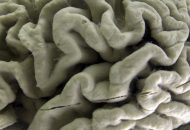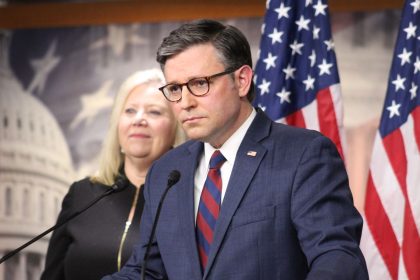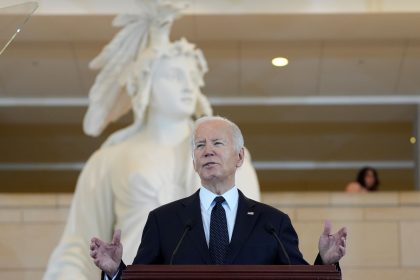Rise in Threats to the Homeland Call for New Technology Solutions for National Defense
COMMENTARY

As lawmakers and security experts wrestle with questions about how to deal with unmanned and unidentified aerial objects in our skies, government officials should consider all tools to address these U.S. airspace challenges. Emerging technologies such as quantum computing could provide solutions for swift, safe and efficient responses for many scenarios.
As President Biden pointed out, one challenge is distinguishing between unidentified objects that “likely pose safety and security risks that necessitate action and those that do not.” For example, national security threats demand agility and the ability to rapidly assess multiple complex scenarios that, in many cases, are too big for a classical computer alone. Quantum computing, especially when combined with classical computers called hybrid quantum, can provide faster analysis and more optimal solutions involving a high number of variables. When addressing aerial objects, a number of factors must be considered such as weather, wind gusts, population density, and proximity to civilians and critical infrastructure.
Quantum computing is available now and companies are looking at how quantum computing technologies can be combined with classical algorithms to provide needed benefits. At D-Wave’s Qubits conference, Davidson Technologies demonstrated a missile defense optimization application that addressed a hypothetical missile attack on Hawaii. The application factored in a wide set of variables that could impact the success of the mission, including wind, rain, lightning and solar flare activity. The demo analyzed more than 67 million possible scenarios and generated an answer in approximately 13 seconds.
ATARC, a nonprofit organization that brings together government, industry and academia, detailed in a 2021 report the ways U.S. service branches can apply quantum computing to address pressing challenges facing our military. It found a variety of scenarios for which quantum computing applications could be used, including warfare simulations, logistics management, emergency response and autonomous vehicles.
Unfortunately, the U.S. government has fallen short in utilizing near-term quantum technologies. Its siloed focus is on research for longer-term hardware advancements that may be years, or even decades, away. This delayed approach could mean the United States falls behind other countries in realizing the benefits of today’s technology by not deploying these advanced technologies — a missed opportunity in terms of national competitiveness and national security.
Use of today’s quantum computing solutions is underway by foreign governments, private-sector companies and other organizations to solve optimization problems, including logistics, e-commerce, supply chain management, employee scheduling, fraud detection, transportation, weather modeling and autonomous vehicle routing.
In fact, governments in the United Kingdom, Canada, Japan and others are pursuing practical quantum computing for pressing security, economic and climate initiatives. The Australian government is exploring how quantum computing applications can improve its transportation system. It is also evaluating how quantum applications can enable autonomous vehicles to conduct last-minute re-supply operations for the Australian Army. The Japanese government supported building quantum applications to reduce carbon dioxide emissions during waste collection, optimize construction projects and improve tsunami evacuation routes.
The United States can and should be leading the way in implementing quantum computing to optimize operations and address today’s challenges. In 2018, Congress passed the National Quantum Initiative Act, which gave the United States a plan for advancing quantum technology. Since then, quantum technology has rapidly advanced with larger hardware systems, cloud access and the creation of powerful hybrid technology. While the act must be reauthorized this year, Congress should also use this opportunity to expand our government’s focus to near-term quantum and quantum-hybrid applications while continuing to research longer-term hardware advancements.
Congress began that effort three years ago when the FY21 National Defense Authorization Act tasked the Department of Defense with identifying near-term problems that could be solved by quantum computing. Congress should revitalize this effort because, three years later, there is still no focus on using the available technology.
Now is the time for the U.S. government to act and collaborate with industry to build near-term applications using the technology available today. We must explore how quantum computing can provide efficiencies and optimize public sector problems now, such as infrastructure development, emergency response planning, electrical grid resilience and potential aggressors in U.S. airspace in order to advance our country’s interests.
Dr. Alan Baratz is the CEO of D-Wave (NYSE: QBTS), a leader in the development and delivery of quantum computing systems, software and services, and the world’s first commercial supplier of quantum computers.
























